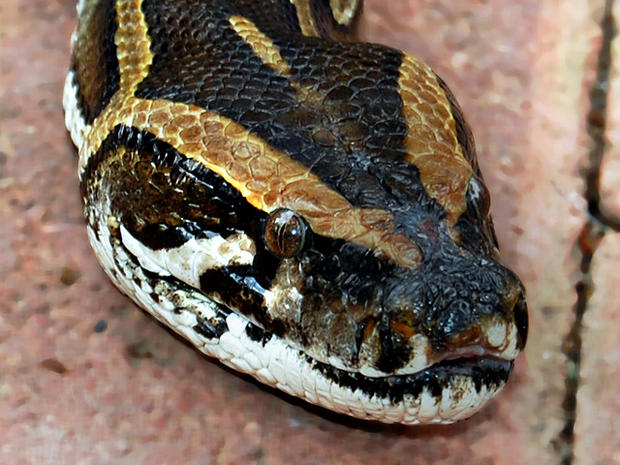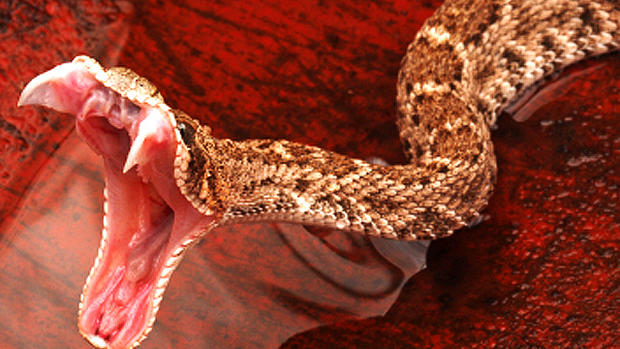Pythons' expandable hearts may hold clues for human health
(CBS/AP) Pythons may not be the world's most talkative creatures. But researchers say their unusual "expandable" hearts may speak volumes about heart health in humans.
PICTURES - Snake! 15 deadliest serpents
"It's this amazing biology," Leslie Leinwand - a University of Colorado at Boulder molecular biologist who studies cardiovascular disease in humans - said about pythons' hearts. "They're not swelling up. They're building (heart) muscle."
Reptile biologists have long studied the strange digestion of these snakes, especially the big Burmese pythons that can go nearly a year between meals without an apparent ill effects. When these snakes swallow that next rat or bird - or maybe deer - something remarkable happens. Their metabolism ratchets up more than 40-fold, and their organs quickly expand. The heart grows a startling 40 percent or more within three days.
Leinwand stumbled across that description and saw implications for people. An enlarged human heart is typically caused by chronic high blood pressure or other ailments that leave it flabby and reduce its pumping ability. But months and years of vigorous exercise give some highly conditioned athletes unusually large, muscular hearts similar in some respects to expanded python hearts.
So Leinwand's team - led by a grad student who initially was fearful of snakes - ordered up some pythons and began testing their hearts.
Surprise 1: A digesting python's blood gets so full of fat it looks milky. Levels of a type of fat called triglycerides increased 50-fold within a day. In people, high triglycerides are dangerous. But the python heart was burning fat so rapidly for fuel that it didn't have time to clog anything up, Leinwand said.
Surprise 2: A key enzyme that protects the heart from damage rose in python blood right after it ate, while a heart-damaging compound was repressed.
Then the team found that a combination of three fatty acids in the blood helped promote healthy heart growth. The hearts of fasting pythons injected with the mixture grew the same way that a fed python's does.
But did that work only for snakes? Lead researcher Cecilia Riquelme dropped plasma from a fed python into a lab dish containing the rat heart cells - and they grew bigger, too. Sure enough, injecting living mice made their hearts grow in an apparently healthy way as well.
Could that kind of growth be spurred in a mammal with heart disease? That's a question Leinwand's team hopes to answer, as it tests it in mice with human-like heart trouble. They also want to know how the python heart shrinks back to its original size do quickly when digestion's done.
The experiments are "very, very cool indeed," said James Hicks, a University of California, Irvine, biologist who has long studied pythons' extreme metabolism and wants to see more such comparisons.
If the same underlying heart signals work in animals as divergent as snakes and mice, "this may reveal a common universal mechanism that can be used for improving cardiac function in all vertebrates, including humans," Hicks wrote in an email. "Only further studies and time will tell, but this paper is very exciting."

